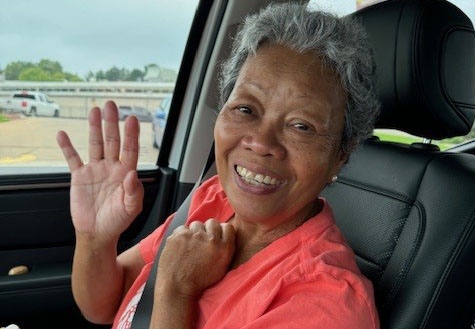- Diseases
- Acoustic Neuroma (14)
- Adrenal Gland Tumor (26)
- Anal Cancer (68)
- Anemia (2)
- Appendix Cancer (16)
- Bile Duct Cancer (26)
- Bladder Cancer (72)
- Brain Metastases (28)
- Brain Tumor (232)
- Breast Cancer (716)
- Breast Implant-Associated Anaplastic Large Cell Lymphoma (2)
- Cancer of Unknown Primary (4)
- Carcinoid Tumor (8)
- Cervical Cancer (160)
- Colon Cancer (166)
- Colorectal Cancer (118)
- Endocrine Tumor (4)
- Esophageal Cancer (44)
- Eye Cancer (36)
- Fallopian Tube Cancer (8)
- Germ Cell Tumor (4)
- Gestational Trophoblastic Disease (2)
- Head and Neck Cancer (12)
- Kidney Cancer (128)
- Leukemia (342)
- Liver Cancer (50)
- Lung Cancer (286)
- Lymphoma (278)
- Mesothelioma (14)
- Metastasis (30)
- Multiple Myeloma (100)
- Myelodysplastic Syndrome (60)
- Myeloproliferative Neoplasm (6)
- Neuroendocrine Tumors (16)
- Oral Cancer (100)
- Ovarian Cancer (172)
- Pancreatic Cancer (160)
- Parathyroid Disease (2)
- Penile Cancer (14)
- Pituitary Tumor (6)
- Prostate Cancer (146)
- Rectal Cancer (58)
- Renal Medullary Carcinoma (6)
- Salivary Gland Cancer (14)
- Sarcoma (240)
- Skin Cancer (298)
- Skull Base Tumors (56)
- Spinal Tumor (12)
- Stomach Cancer (64)
- Testicular Cancer (28)
- Throat Cancer (92)
- Thymoma (6)
- Thyroid Cancer (100)
- Tonsil Cancer (30)
- Uterine Cancer (82)
- Vaginal Cancer (18)
- Vulvar Cancer (20)
- Cancer Topic
- Adolescent and Young Adult Cancer Issues (20)
- Advance Care Planning (10)
- Biostatistics (2)
- Blood Donation (18)
- Bone Health (8)
- COVID-19 (362)
- Cancer Recurrence (120)
- Childhood Cancer Issues (120)
- Clinical Trials (632)
- Complementary Integrative Medicine (22)
- Cytogenetics (2)
- DNA Methylation (4)
- Diagnosis (232)
- Epigenetics (6)
- Fertility (62)
- Follow-up Guidelines (2)
- Health Disparities (14)
- Hereditary Cancer Syndromes (128)
- Immunology (18)
- Li-Fraumeni Syndrome (10)
- Mental Health (116)
- Molecular Diagnostics (8)
- Pain Management (62)
- Palliative Care (8)
- Pathology (10)
- Physical Therapy (18)
- Pregnancy (18)
- Prevention (920)
- Research (392)
- Second Opinion (74)
- Sexuality (16)
- Side Effects (604)
- Sleep Disorders (10)
- Stem Cell Transplantation Cellular Therapy (216)
- Support (402)
- Survivorship (322)
- Symptoms (182)
- Treatment (1786)
Staying positive during lung cancer treatment
2 minute read | Published August 01, 2017
Medically Reviewed | Last reviewed by an MD Anderson Cancer Center medical professional on August 01, 2017
Phil Richmond never missed his annual physical, and he considers himself lucky for that. Because he smoked, his doctor performed a chest X-ray every other year. And it was through one such X-ray in 2008 that his doctor noticed a spot on his lung, which was confirmed by a PET scan. The diagnosis was clear: Phil had lung cancer.
“I was lucky I received an early lung cancer diagnosis,” Phil says. “Most cases aren’t caught until later.”
Lung cancer treatment at MD Anderson
Phil was referred to a local surgeon in his hometown of Ft. Smith, Arkansas. But the surgeon quickly admitted he didn’t feel comfortable performing the surgery. It was too difficult, too risky. So, he set up an appointment for Phil at MD Anderson, another step that Phil is certain was critical to his survival.
“If it were not for MD Anderson, I wouldn’t be here today,” Phil says.
Initially, Phil and his wife were overwhelmed by MD Anderson. It was too big. But when he met his oncologist, Faye Johnson, M.D., Ph.D., associate professor of Thoracic/Head and Neck Medical Oncology, he began to feel more at home. She explained to Phil that his lung cancer treatment would include chemotherapy, radiation therapy and surgery.
“The whole staff couldn’t have treated me any better,” Phil says. “They answered all my questions, no matter how stupid they seemed to me.”
Choosing to be positive
As Phil’s fears subsided, he and his wife decided to make the most of their time in Houston. Even though they were here for lung cancer treatment, they treated it like a vacation as much as possible. They visited museums. They went out for dinner. They even found time to play a few rounds of golf. Phil was surprised he felt well enough to play.
“We stayed as positive as we possibly could,” Phil says. That positivity is the third factor to which Phil credits his survival.
“I cannot tell you how much that helped me, and I know it’s help some others,” he says.
Advice for other patients
After being cancer-free for almost 10 years, Phil dedicates much of his free time to helping other cancer patients keep that positive attitude. He serves on the board of a local cancer nonprofit and volunteers with myCancerConnection, MD Anderson’s one-on-one support program for patients and caregivers.
His best advice for other patients? “Even on the days when nothing’s going right, something will go right. You just have to look for it,” he says. “And never lose sight of that victory you’re going to have, because you’re going to win it.”
Request an appointment at MD Anderson online or by calling 1-877-632-6789.
Related Cancerwise Stories

Even on the days when nothing’s going right, something will go right. You just have to look for it.
Phil Richmond
Survivor





